Announcing the new Koch History Centre Fellows
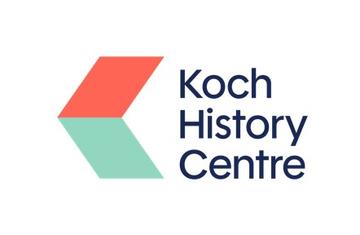
The Faculty of History and Wadham College, Oxford, are delighted to announce the names of the inaugural Koch History Centre Fellows, appointed for the academic year 2025-2026 on the theme of Religion and the State.
The Fellows will pursue independent research projects while at the Centre, coming together to discuss the historiographical implications of their work through a regular seminar series.
Koch History Centre Fellows

Salmoli Choudhuri is an intellectual historian of legal and political concepts that have played a foundational role in shaping modern and contemporary India and informing global thought. Salmoli completed her PhD in 2023 at the University of Cambridge on freedom and liberalism in the thought of Rabindranath Tagore, modern India's foremost poet and chief cultural icon. Previously, she pursued an MPhil in Modern South Asian Studies at Cambridge and read for the BCL at Oxford. In another life, Salmoli practiced law with one of India's leading law firms after graduating with twelve gold medals from the National Law University, Delhi. Following the completion of her doctoral studies, she joined National Law School of India University, Bangalore, as an Assistant Professor, where she taught subjects ranging from administrative law and jurisprudence to global ideas of freedom. Currently on leave, she was most recently an Alexander von Humboldt Fellow at the department of law, Humboldt University, where she worked on a monograph on Tagore and freedom. As a Koch Junior Fellow, alongside completing her book, she will begin a new project on the history of the state in Indian political thought and its conceptualisation in law and religion through juristic and sacral ideas from the interwar period to the mid-twentieth century. Since India was under foreign rule, the state was rarely an object of serious attention in anticolonial thought, which remained preoccupied with questions of nationalism and self-determination; by adopting a new focus, her project seeks to recover a distinct line of thinking about the state in Hindu and Buddhist thought during the late colonial period. |
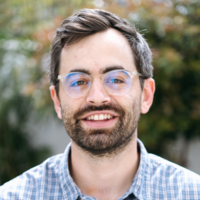
Henry Clements is Assistant Professor of History at the University of Warwick. His work spans postcolonial theory, secularism and religion in modernity, psychoanalysis, and the intellectual history of the Middle East. He has published in Comparative Studies in Society and History, History of the Present, and the International Journal of Middle East Studies and is currently at work on his first book, which will be his focus as a Koch History Centre Fellow. Tentatively entitled The Difference of History: ‘Millet’-Making in the Late Ottoman Empire, the book shows how the nineteenth-century Ottoman Empire was transformed by a new logic of political organization rooted in the supposition that human differences were the product of something called “history.” |
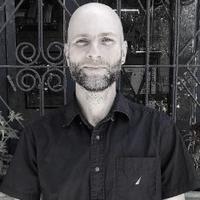
Daniel Gunnar Kressel specializes in the history of transnational right-wing ideologies and networks in Latin America, Spain, and Israel. Trained as a historian of Latin American and International history at Columbia University, he is particularly interested in the mythological thinking underpinning the political theories of neo-fascist movements during the Cold War. His book, Hispanic Technocracy: Turning Fascism to Catholic Authoritarianism in Spain, Argentina, and Chile (Cambridge University Press, 2025), examines the “Hispanic” cosmology that underlies Latin America’s neoliberal turn of the 1970s. At the Koch History Centre, he is designing a new book project on Opus Dei – a transnational Catholic society that operated as a coordinated ideological agent in Latin America and had a conspicuous influence on right-wing politics there since the 1960s. |

Geoffrey Levin is assistant professor of Middle Eastern and Jewish Studies at Emory University. As a Koch History Fellow, he will be working on his second book project, America’s Jews of Islam: Middle Eastern Jews and American Jewish Politics, which will explore American Jewish discourses about and engagement with Jews in the Middle East and North Africa since the nineteenth century. Dr Levin’s first book, Our Palestine Question: Israel and American Jewish Dissent, 1948-1978 (Yale University Press, 2023), won the American Jewish Historical Society’s Saul Viener Book Prize and the SERMEISS Book Award in Middle Eastern Studies. Dr Levin earned his doctorate from New York University in 2019 and held a postdoctoral fellowship at Harvard University before joining Emory’s faculty in 2020. |

Carlotta Marchi holds a PhD in History, awarded in September 2021 through a joint doctoral PhD between the Università degli Studi di Pavia (Italy) and Aix-Marseille Université (France). Between 2023 and 2024, she held a postdoctoral research fellowship in History and Institutions of Africa at the University of Pavia. Her research focuses on the colonial and postcolonial history of Libya and Egypt, with particular attention to the interplay between Islam, nationalism, and state formation in North Africa. Her proposed research project for the 2025–2026 fellowship investigates the politicisation of Islam in post-independence Libya (1949–1969). The study explores how Western powers instrumentalised Islam as a means of political legitimation in their regional and international strategies. Through an analysis of diplomatic sources and political discourses, the project aims to understand how Islam was mobilised as a tool of influence in relations with the Kingdom of Libya, particularly in the context of the country’s transition from colonial rule to independence and its strategic position in Cold War geopolitics. |
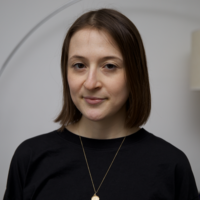
Odile Panetta is an historian of early modern ideas, with a particular interest in Protestant political thought between the sixteenth and seventeenth centuries. Before joining the Koch History Centre, she was a Lecturer in Cultural and Intellectual History at the Warburg Institute and a Departmental Lecturer in Early Modern History at Oxford and Christ Church. She also remains affiliated to Aarhus University, where she has been contributing to the AUFF-funded project “Body politic(s) – The body in early modern political thought”. Her previous research has focused on the development and dissemination of ideas about (il)legitimate coercion among Protestants of various denominations, and particularly on discussions about religious toleration in mid-sixteenth-century Switzerland and their later impact. As a Koch History Centrre Fellow, Dr Panetta will be investigating the debate over the state’s authority in matters of religion that split the Dutch Republic in the wake of the Arminian controversy in the first half of the seventeenth century. She will focus on how leading theologians at the Reformed universities of Leiden and Franeker articulated a view of Church-state relations that guaranteed the autonomy of the Church from magisterial control while still preserving a role for civil authorities in matters of religion, as well as on how their ideas were received and contested. Her aim is to both situate these ideas within the wider development of early modern Reformed political thinking, and explore the role played by universities as public-facing spaces for the development and promotion of alternative visions of the state’s ius circa sacra. |

Amar Sohal is an intellectual historian of modern India and Pakistan and Lecturer in the History of Political Thought at King’s College London. His research focuses on anti-colonial nationalism, religious politics, and the secular state. After completing his DPhil in History at Merton College, Oxford, Amar was elected Early-Career Research Fellow in Politics and International Studies at Corpus Christi College, Cambridge. There he revised his DPhil dissertation for a monograph, The Muslim Secular: Parity and the Politics of India’s Partition (Oxford University Press, 2023), published in the Oxford Historical Monographs series. Amar’s academic articles and edited special issues on minorityhood and Kashmir have been published in leading journals: Global Intellectual History, Modern Intellectual History, and South Asia. His second research project explores the political thought of Hindu and Muslim conservatives across the twentieth century. Surmounting institutional divisions, these thinker-politicians collectively theorised ideas of state authority, freedom, (non)violence, and national culture. |

Teresa Witcombe works on the religious, cultural, and intellectual history of the medieval Iberian Peninsula, with a particular focus on Muslim-Christian relations, translation and transfer across frontiers, and the formulation and curation of religious identities. Her training as a historian began at St John’s College, Oxford, where she completed a BA in History. This was followed by a Masters at the Sorbonne Paris-IV and the École des Hautes Études en Sciences Sociales, and several years working at UNESCO in Paris. Dr Witcombe received her PhD in History from the University of Exeter in 2019, where her doctoral research explored the remarkable life of Bishop Maurice of Burgos on the frontiers of the medieval Christian world (see her monograph, On the Edges of Christendom). Subsequently, she was awarded funding by the Leverhulme Trust to pursue postdoctoral research at the CSIC-CCHS in Madrid, where she studied medieval Christian understandings of Islam, with a particular focus on the translation of Islamic texts into Latin. During this period, Dr Witcombe also co-edited a volume on the reign of Fernando III of Castile (available here). Between 2022 and 2025, she held a British Academy postdoctoral research fellowship at the University of Oxford, researching the movement of captives of war and slaves across the Muslim-Christian frontier in medieval Iberia. As an incoming fellow at the Koch History Centre, Dr Witcombe looks forward to expanding this work on interreligious enslavement by considering the theological and legal status of medieval slaves and captives of war, including the codes of conduct that determined their treatment and the extent to which their humanity was recognised by their captors. |

Hengameh (Henny) Ziai is a lecturer in the history of the Middle East and Africa at SOAS, University of London. She received her BA in Philosophy, Politics and Economics from the Oxford University, masters degrees in African Studies and Middle East Studies from Oxford University and SOAS respectively, and a PhD in Middle Eastern, South Asian and African Studies from Columbia University. Her interests lie at the intersection of political theory, Islamic studies, and critical political economy, with a current focus on histories of capitalism and the emergence of colonial modernity in the Middle East and Africa. Alongside her research she has digitised, through the British Library’s Endangered Archives Programme, a rare nineteenth century commercial archive belonging to the Sudanese merchant, Abdallah Bey Hamza [EAP1284], as well as co-founding and co-convening the Histories of Capitalism and Race seminar series at SOAS. She is currently completing her book manuscript, tentatively entitled Archives of Insurgency: Islam, Political Economy and the Mahdist Rebellion in Sudan. |
Koch History Centre Senior Fellows

Uta Balbier is Professor of Modern History at the University of Oxford and Tutorial Fellow of St. Anne’s College. Her research focuses on the transnational history of the 20th century United States, particularly on how religion shaped, and was shaped by, America’s engagement with the world. Trained in European and North American history, she explores the relationship between politics and culture, the sacred and profane, and the transnational interconnectivities of performance, practices, and beliefs in the 20th century. Her most recent monograph is Altar Call in Europe: Billy Graham, Mass Evangelism, and the Cold-War West (Oxford University Press, 2021). The book challenges assumptions about a uniquely American relationship between politics, consumerism, and religion, and argues against an exceptional American religious modernity. The project she will pursue at the Koch History Centre explores the interplay between religion, state authority, and capitalism in the 20th Century United States through the history of the Coca-Cola company. It traces the history of the company from its genuine religious roots in Southern Methodism in the late 19th century to its civil religious role in American corporate imperialism during the Cold War. |
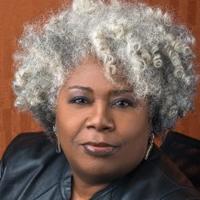
Anthea Butler is the Geraldine R. Segal Professor in American Social Thought at the University of Pennsylvania. She is a historian of American religion, and her research spans American Religious history, race, politics, evangelicalism and media. Professor Butler’s recent book is White Evangelical Racism: The Politics of Morality in America (Ferris and Ferris/UNC Press). Her project at the center covers the historiographical origins of religious nationalisms spanning the 20th century, focused on the United States, Brazil, and Nigeria. The rise of the cold war, missionary activity, race, and theology played a role in bolstering the rise of authoritarian leadership and nationalism in these nations, finding its full flowering in charismatic political leadership undergirded by religious leaders. Professor Butler is the winner of the 2022 Martin Marty Award for the Public Understanding of Religion from the American Academy of Religion and has received grants from the American Council of Learned Societies, Princeton University, Yale University, and Harvard University. |

Céline Dauverd is a historian of the Mediterranean specializing in Italy, Spain, and North Africa with a focus on the relation between empires and religion in pre-modern times. She has published three monographs with Cambridge (Imperial Ambitions in the Early Modern Mediterranean, 2015; Church and State in Spanish Italy, 2020; Colonialism and Resistance in Early Modern Europe, 2026) with a fourth one in the works (All the Kings of the Mediterranean: Iberian Kings, Renaissance Popes, and Maghrebi Shariffs during the North African Conquests 1450-1630). She has received fellowships from institutions such as the Casa Velázquez Madrid, Columbia University New York, the European University Institute Florence, I Tatti Harvard University, the University of California Irvine, the University of Wisconsin-Madison, and from foundations such as the Ahmanson, Andrew Mellon, and the Council of American Overseas Research Centers (NEH). She has obtained Visiting Professorships from the Historisches Kolleg in Munich, the Sapienza Università di Roma, and the Università di Pisa. As a Koch History Centre Fellow, Dauverd investigates relations between Christians, Moriscos and Conversos during the Spanish Monarchs’ conquest of Málaga in 1487. Her project, Cross-confessional Málaga: Christian, Jewish, and Muslim interaction through Resistance and Construction, 1487-1609, investigates the techniques that Malagueños crafted to circumvent the Crown’s rationale of national cohesion through ethnic purity. |
The study of big questions in history has fascinated me since my teens. I am delighted to see this Centre established at Oxford, with its unparalleled excellence in research and teaching.
Author, entrepreneur, and philanthropist, Richard Koch (History, 1968)
The Koch History Centre is a wonderful testament to the enduring value of history research at Oxford, and we are delighted to welcome the inaugural cohort of Koch Fellows this year. It’s an auspicious moment for the university with the Stephen A. Schwarzman Centre for the Humanities opening to students, staff, and the public this autumn, underlining the power and centrality of the Humanities in the wider world.
Professor Daniel Grimley, Head of the Humanities Division



